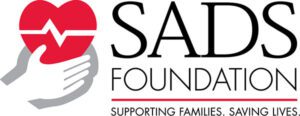CASQ2 Related Catecholaminergic Polymorphic Ventricular Tachycardia (CPVT)
What is CASQ2 related catecholaminergic polymorphic ventricular tachycardia?
CASQ2 related catecholaminergic polymorphic ventricular tachycardia (CPVT) is a disorder that is characterized by episodes of syncope (fainting) that are brought on by strong emotions or exercise. This form of CPVT is caused specifically by the CASQ2 gene, hence the name.
What are the symptoms of CASQ2 related catecholaminergic polymorphic ventricular tachycardia?
The symptoms of this condition typically appear between age seven to twelve, although they can manifest later in life. The major symptom is fainting episodes, which are usually brought on by exercise or strong emotion. They occur due to ventricular tachycardia, meaning the heart beats too quickly.
It is very important to seek treatment for this condition, as a complication is cardiac arrest. In fact, if CASQ2 related CPVT is left untreated, 30% of affected individuals will experience cardiac arrest. CPVT can be fatal as well.
What causes CASQ2 related catecholaminergic polymorphic ventricular tachycardia?
A mutated CASQ2 gene is responsible for this condition, and it is inherited in an autosomal recessive pattern. Medical professionals are still investigating how this mutation and other factors result in the characteristic symptoms of CPVT.
How is CASQ2 related catecholaminergic polymorphic ventricular tachycardia diagnosed?
It can be difficult to obtain the correct diagnosis, as fainting can be a symptom of other conditions. Doctors will begin with a physical exam and ask about family and medical history. Tests that may be used include exercise stress tests with an ECG, ECGs, echocardiograms, MRIs, genetic testing, and ECG monitoring over an extended period of time.
What are the treatments for CASQ2 related catecholaminergic polymorphic ventricular tachycardia?
If one is in an episode, defibrillation will be used to bring the heart rhythm back down to normal. In terms of long-term management, affected individuals should avoid sports, use beta-blockers or calcium channel blockers, and use medications that prevent abnormal heart rhythms.
If cardiac arrest has been an issue, there may be a need for an implantable cardioverter defibrillator. Surgery to remove the nerves that cause the fast heart beat may also be necessary.
Where can I find out more about CASQ2 related catecholaminergic polymorphic ventricular tachycardia?
CASQ2 Related CPVT Articles

SADS Foundation Will Meet with FDA in June on New Treatments for LQTS and CPVT







